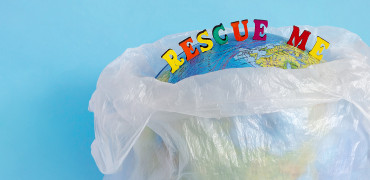The UN climate conference that has just ended in Poland saw broad agreement reached on the rules needed to implement the 2015 Paris Climate Accord, which comes into force in 2020.
Known as COP24, this is the twenty-fourth meeting of the Conference of the Parties – The decision-making body of the United Nations Framework Convention on Climate Change (UNFCCC).
Held between the 2nd and 14th December in Katowice, the event was chaired by the Polish Government.
Whilst the conference successfully agreed the operational rules on how to implement the 2015 Paris climate agreement that will govern the way the world tackles climate change, the most important thing about the event was that the carefully negotiated Paris agreement did not unravel.
Countries settled on most of the tricky elements of the “rulebook” for putting the 2015 Paris agreement into practice.
The agreement details rules on how the world’s governments will measure, report and verify emissions-cutting efforts. This is important because it will help ensure that all countries around the globe have to adhere to agreed standards.
The world needs to recognise the actions that we must all undertake.
A crisis is a crisis
One of the striking images to emerge from the event was Greta Thunberg, the 15-year-old Swedish student who held daily press conferences in Poland to reinforce her message that warm words aren't enough anymore.
Greta came to fame by organising school strikes in Sweden to raise awareness of climate change and the message to COP24 was crystal clear: "We cannot solve a crisis without treating it as a crisis."
There were many others at the event who also feel that the agreement does not go far enough and point to the strength of the scientific argument, and growing public awareness of the significant impacts that climate change is having as clearly seen this year with devastating heatwaves and uncontrollable wildfires.
"If people think the rulebook is the way to get the world on that path, it is not robust or ambitious enough," said Mohamed Adow from Christian Aid.
Community momentum
EU Climate commissioner Miguel Arias Canete though was much more positive explaining that: "We have a system of transparency, we have a system of reporting, we have rules to measure our emissions, we have a system to measure the impacts of our policies compared to what science recommends."
For others at the event, reaching any sort of agreement in Poland was less about setting a rulebook and more about demonstrating that the international community still has both momentum and teeth.
Spanish Ecology Minister Teresa Ribera said: "What we have seen is that everybody has supported the package, no single country has decided to step down.”
She compared the conference to " organising a party for 200 friends, and there's a single menu that everybody has to eat. It is not so easy but we have got it. That's fantastic!"
Time is running out
Whilst the conference is a positive step in tackling climate change, little was achieved in resolving how countries are going to meet targets on cutting emissions.
We face a warming of 3 degrees Centigrade from pre-industrial levels, which according to scientists would be completely disastrous, and would significantly increase floods, droughts, and see rises in sea level and a major decline of food production around the globe.
The important deadline is 2020, which is when governments need to show they have met targets for cutting their emissions, set over 10 years ago, and when they must agree to much tougher targets.
How long do we have left?
The findings of the IPCC’s come with a stark warning that the world has little over a decade to not only bring carbon emissions under control but halve them, if we are to get anywhere near stabilising the climate.
We have seen several years where emissions have appeared to be stabilising but now they are on the rise again and several countries are pushing for more use of coal and oil, which still drives a lot of economies.
We have also seen a significant increase in the use of clean energy but this need be speeded up dramatically and we need to transition from an infrastructure designed around high-carbon energy towards low or even zero carbon technologies.
The next steps
The next meeting of the UN in scheduled for Chile in 2019, where governments will look to resolve the final elements of the Paris rulebook and start to detail the future emissions targets.
2020 will be the key year though as the deadline for when countries not only have to detail how they are meeting their current emissions commitments, they will also have to set and agree targets for 2030 and beyond.
So, all in all COP24 does seem to move the world closer to greater understanding of the actions that all countries need to commit to.
Another positive to emerge from the event was the increased energy and action that we are seeing from the world’s youth, as embodied by Greta Thunberg. This drive calls for the UN process to connect more speedily with what is actually happening on the ground and was summed up best by the former president of the Maldives, Mohamed Nasheed, who is now their lead climate negotiator: "Almost 10 years since I was last at these climate negotiations, I must say, nothing much seems to have changed. We are still using the same old, dinosaur language.
“Still saying the same old words. Still making the same tedious points."
Let’s hope that the pace of discussions, negotiations and resolutions ramps up quickly so that collectively, the world recognises the actions that we must all undertake.




